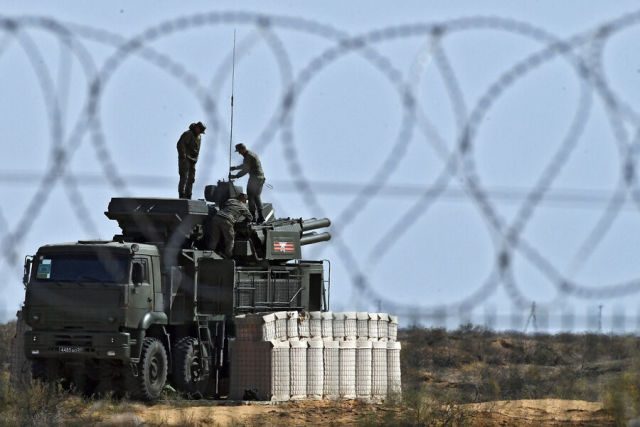Pentagon: escalation of the conflict is possible due to the transfer of Yakhont missiles to Hezbollah
The Pentagon warned of the threat of a "colossal escalation" of the conflict in the Middle East in the event of the transfer of Russian air defense systems to Lebanese Hezbollah. Earlier, the WSJ newspaper wrote about the plans of the Wagner PMCs to transfer the Pantsir-S1 to the group, and the Reuters news agency reported that "powerful Russian anti-ship missiles" are already in service with the movement. The Kremlin called the reports on the supply of weapons groundless.
Russia's potential transfer of air defense systems to the Lebanese Shiite organization Hezbollah would be a serious escalation of the conflict in the Middle East, Deputy Assistant Secretary of Defense Dana Strawl said during congressional hearings .
According to Strawl, Russia is interested in attacks on American forces in the Middle East, as this would help "shift Washington's focus" from the Russian-Ukrainian conflict. The deputy assistant to the head of the Pentagon also warned about the deepening of Russia's military cooperation with Iran, which, according to the American authorities, may pose a threat to stability and security in the region.
At the same time, she did not disclose whether the United States has data on Russia's alleged plans to transfer weapons to Hezbollah, promising to provide Congress with additional information at a closed meeting.
The appearance of a "serious problem"
On November 2, the American newspaper The Wall Street Journal, citing sources, wrote that the forces of the private military company Wagner stationed in Syria plan to transfer the "Russian SA-22 system" to Hezbollah - this is how the anti-aircraft missile and cannon complex (ZRPC) "Pantsir-S1" is called in the NATO codification.
According to one of the sources, the installation can be sent to Hezbollah from Syria with the consent of President Bashar al-Assad. Another interlocutor of the publication said that the American authorities are monitoring the discussions involving Wagner and Hezbollah and assess the potential supply as a "serious problem."
Analysts interviewed by the WSJ believe that the transfer of the complex may become a "way of rewarding" Iran for supplying Russia with drones allegedly used in the military operation zone in Ukraine. Both Tehran and Moscow have repeatedly denied reports of the Russian Federation using Iranian drones.
"Reasoning has nothing to do with itself"
The press secretary of the President of Russia Dmitry Peskov, commenting on the WSJ report, said that the publication of the publication is not based on any facts:
He recalled the existence of emergency communication channels and stressed that the United States can bring to the Russian military "really based on something concerns."
Russian Hezbollah missiles
On November 8, Reuters, citing sources in Lebanon, reported that Hezbollah is armed with "powerful Russian anti-ship missiles" that can be used against American warships in the Mediterranean Sea.
The Lebanese organization itself has never confirmed that it has these weapons.
"There is a Yakhont, and, of course, there is something else besides it," said one of the agency's sources and added that Hezbollah's "anti-ship" capabilities have expanded significantly since 2006.
According to the source, the use of these missiles will mean that the conflict in the Middle East "has escalated into a major regional war."
The threat of the second front
On November 3, Hezbollah Secretary General Hassan Nasrallah called the likelihood of a large-scale conflict with Israel real:
"There is concern about the possibility that this front will slide into an additional escalation or a large-scale war. This probability is real, it can happen."
Nasrallah stressed that Hezbollah joined the fighting against the Israeli army on October 8, the day after the attack on Israel by the radical Palestinian organization Hamas, which controls the Gaza Strip.
In addition, the Secretary General of the organization blamed the United States for the conflict and accused Washington of silence in the face of "thousands of babies and children torn apart in Gaza as a result of Israeli missile strikes." He said that Hezbollah is not afraid of American ships in the Mediterranean and has a "clear plan to destroy them" in the event of an escalation of the conflict.
Semyon Sleepy

